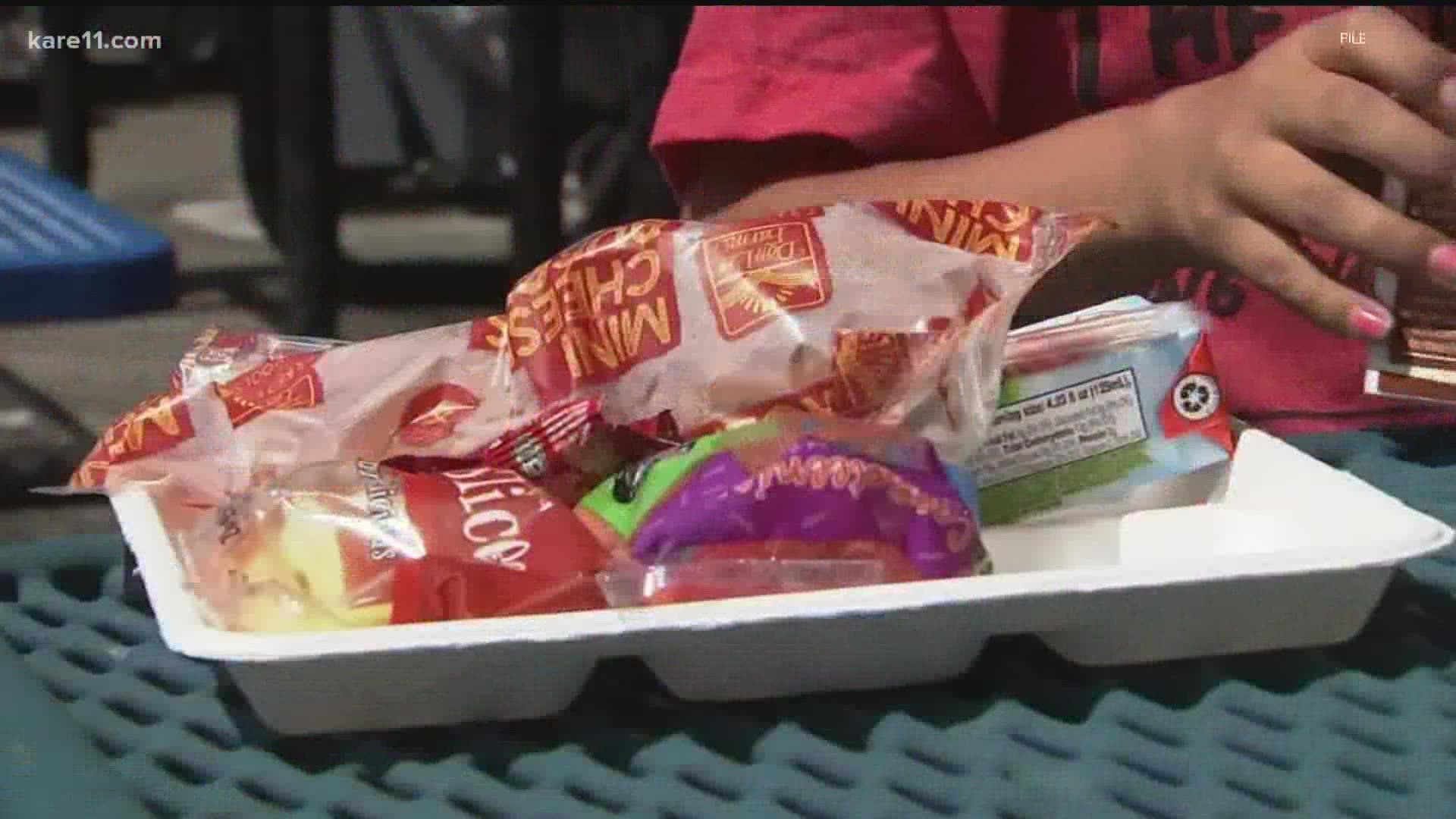ST PAUL, Minn. — For Amber, a mother in Duluth, putting four kids through school has been a financial struggle.
"Me and my husband both work and we make just above the threshold to get free lunches, reduced lunches, SNAP…any of that stuff," said Amber, who chose to withhold her last name for privacy. "But we’re barely above the threshold, so we’re still like working poor."
Amber was one of several Minnesotans who shared personal stories in a listening session with Lieutenant Governor Peggy Flanagan Feb. 16.
"It’s been a real struggle because we’re just at that threshold where we make too much to get help but we don’t make enough to really be ahead of the game," Amber said in the session.
So when emergency funding paid for her children's meals, Amber said it was a welcome relief.
"Oh my god, we had food!" she said. "The kids could get food from school and we had food! It was a Godsend, it was a blessing."
Now, local advocates are pushing to make sure free meals are a permanent fixture for Minnesota families. The Hunger-Free Schools campaign, a coalition led by Hunger Solutions and Blue Cross Blue Shield, is working to spread awareness and work with Governor Walz to make that happen.
"We don’t make kids pay for the bus, we don’t make kids pay for textbooks, we should offer the same kind of basic needs services for food," said Colleen Moriarty, executive director for Hunger Solutions.
Moriarty points out that sometimes the families who qualify for free and reduced lunches change from year to year, and kids can get lost in the system. She provided an example of a family who relies on farming for their income, and a poor year follows a good one.
"Then their kids have to rely on public support. That transition sometimes goes really easily," Moriarty said. "But sometimes it doesn’t go as easily and kids get lost in the process of paperwork and the other kinds of things that have to happen. This makes it a streamlined program."
The nearly $187 million it will cost to implement this program in FY 2022-2023 has already been included in the Governor's supplemental budget recommendations, which now just needs to be approved.
Moriarty says it would make sense to have Minnesota continue free meals--something that was successful during COVID.
"We had a system that had gone from precarious, hard to understand, complex, to everybody eats during COVID. To now a position of, are we going to go back to that? Or we going to continue on with what we knows works. And we know this works for kids," she said.
In 2021, Maine passed a law ensuring free meals for all students. California has done the same.

